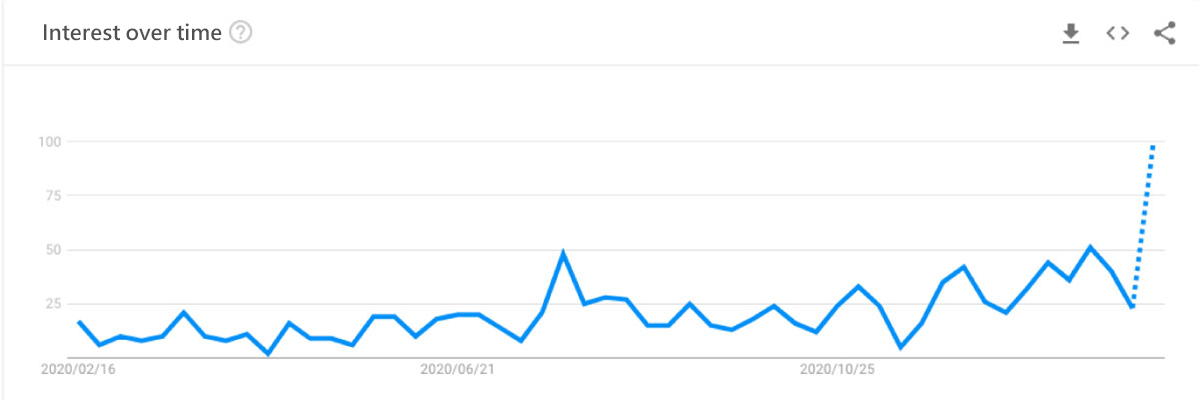- Viewpoints
Hit Habit Forecast is a regular column of the Hit Habit Makers, a group of young planners at Hakuhodo HQ that gamely stood up to say they were going to create hit habits—not hit products—as consumption shifts from purchasing things to purchasing experiences. Analyzing social media accounts and purchasing data of highly sophisticated users and conducting analysis on popular articles, etc. in a variety of media that have their fingers on the pulse of social trends, this is the bold, new challenge of forecasting hit habits that are about to break.

Hello. I’m Shun Murayama of the Hit Habit Makers.
We take turns writing this column, so my turn comes around regularly. The funny thing is, it never comes when I feel like I’m on top of my work, only when I’m under the pump. I know I should write it when I have the time so that I don’t have to rush it when I’m busy, but I just don’t. How disappointing is that in my thirties.
When I look back at myself as a high school student, a non-participant in after-school activities, I was just another member of the “go-home” club who passed his days tiredly, without goals, and if you threw a rock at me, you’d hit me 9 times out of 10. Meanwhile, the cohort we call Generation Z (Gen Z), which has been in the spotlight recently as the “digital native generation,” could potentially play a role different to those played by students of the Showa (1926–1989) and Heisei (1989–2019) periods in Japan. In this article, I’d therefore like to discuss “cross-generational co-creation.”
The diversification of values has been a hot topic recently, and the gap between the values of the baby boomer and senior generations and those of young people has been growing wider and wider thanks to rapid changes in society as well as the diversification of values. As companies explore utilizing the experience-backed wisdom of seniors in this age of 100-year life, conversely, it also appears that the utilization of Gen Zers, who have not previously been recognized as labor by companies, is also well under way.
The topic of this article, thus, is the fact that sensibilities and opinions of the youth generation, who have never had jobs, are coming to be accepted as equally valuable as specialized wisdom garnered over a lifetime.
If you’re not familiar with the term “Generation Z,” it is used to refer to young people born from the mid-1990s on, and indicates the generation born after Generation X and Generation Y (the Millennials). A quick look at Google Trends shows that searches for “Z sedai” (Generation Z) have been growing gradually since around mid-2020.
Searches for “Z sedai” (Generation Z)
 Source: Google Trends
Source: Google TrendsLooking into companies’ efforts regarding young people, including Gen Zers, I found one case where a certain well-known global luxury brand involves employees aged under 30 in a “shadow committee” that it consults for opinions about its new products and marketing. This is, I think, the perfect example of Gen Zers being accorded value as specialists with completely different values. (In this instance the committee is comprised of those under 30, so it also includes some Millennials.) Elsewhere, a Japanese venture enterprise employs someone aged under 18 as their Chief Future Officer. It seems they felt that in order to think about the future of the world, they needed the participation of children, the owners of that future.

Society in the growth economy, when certain correct answers and defined pathways were visible, did not feel the importance of “youth” and “inexperience,” unlike today, when these have, conversely, starting to have value. Certainly, in a VUCA (volatility, uncertainty, complexity, ambiguity) age, a time of turbulent change and uncertainty about the future, I think it’s fair enough that companies determine that the idea that age confers value is coming to an end and that even though young people don’t have the sorts of know-how learned in marketing and on the job, the digital habits and values they have known since they were little will be more beneficial to their corporate activities going forward.
In addition to digital literacy, knowledge from the programming classes that became compulsory from 2020 as a result of the revision of Japan’s curriculum guidelines, may make young people increasingly valuable in the future. Besides programming, it seems that classes in entrepreneurship also began around 2019. Rather than knowledge of math, Japanese and whatnot, the ability to come up with solutions on one’s own is now being nurtured in classes on entrepreneurship, where there is no one correct answer.
Moreover, besides programs in crowdfunding for high school students, companies are now leading programs for local residents and high school students aimed at solving problems in the community, and there are now even companies that have internship positions for high school students. Clearly these programs have a recruitment PR function and are intended to give companies opportunities to be in contact with promising talent early and try to recruit them before they would otherwise be permitted, but I’m sure that companies also use what they get from such interns in their corporate activities.
I have given several examples of cross-generational co-creation, but let’s consider why this trend is spreading now. I think the main reason is that in an age where there are no absolute correct answers, companies have started seeking more of that which cannot be learned through study than that which can, and fresh knowledge to use alongside wisdom earned through experience.
Going forward, it may become standard for companies to carry out their corporate activities not just with people within their four walls that have the same knowledge, but together with not just young people like Gen Zers, but other third parties who have a variety of positions, attitudes and wisdom.
Finally, let’s think a bit about business opportunities offered by cross-generational co-creation.
Examples of cross-generational co-creation business opportunities
■ Recruiting selected high school students as limited-term “one-day councilors” who will be responsible for the future of the community
■ Companies experimentally establishing sub-brands that high school students operate as employees
■ Holding business contests where high school students serve as judges
And so on.
I, too, plan to actively learn from today’s high schoolers, not give up on trying to understand what they’re thinking.

Integrated Planning & Creative Division
Hakuhodo Inc.
















